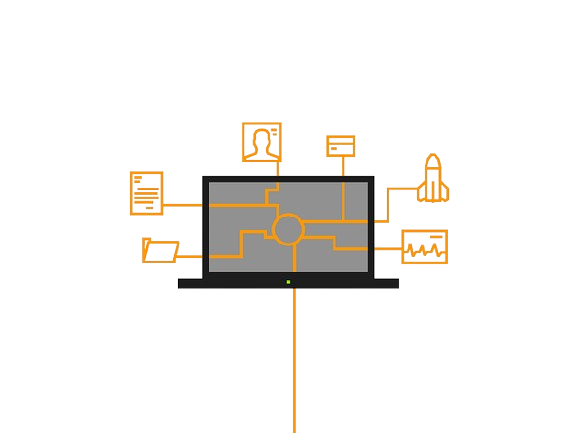
Countries where vpn is illegal at a glance
VPNs are allowed in most countries. In places like the US, the UK, and Europe, you can use them without worrying about legal trouble. VPNs protect your online privacy, which is important for a free and open society. But not all governments support internet freedom. Some countries have rules on VPNs, and others completely ban them.
A VPN hides your IP address and encrypts your internet connection, so you can browse more privately. Activists and journalists often use VPNs to protect their identity when working on sensitive issues. You can also use a VPN to access websites blocked by your government and get unrestricted internet access.
Some governments impose heavy penalties for breaking VPN laws. Let’s look at which countries restrict or ban VPNs and why.
Are VPNs Legal?
In most countries, yes. A VPN helps you bypass censorship and surveillance, which is why authoritarian governments might not like them. Countries that ban or restrict VPNs include China, Iran, Iraq, and Russia.
So, if you’re not in a country with strict censorship, you’re probably safe to use a VPN. Keep reading to find out which countries ban or restrict VPNs.
Why Do Countries Ban VPNs?
Governments that ban VPNs often use heavy censorship and surveillance to maintain control. They limit the flow of information to keep people from learning about their wrongdoings and push content that makes them look good.
To stop criticism, these governments monitor local media and online activity. By controlling what people know, they control how people feel.
For example, China’s government spends a lot on controlling information and promoting propaganda. While this usually keeps public opinion in their favor, recent protests over strict Covid-19 rules show that their control has limits.
Authoritarian governments may block foreign news and social media because they can’t fully control these sources. VPNs let people bypass these blocks and access outside information, which makes VPNs a threat to such governments.
Are VPNs Used For Illegal Activities?
A VPN is a versatile tool. It can hide your IP address, keep you safe on public networks, and even help you avoid slow internet connections.
VPNs were created mainly for security and privacy. Unfortunately, some people use them for illegal activities. For example, hackers might use VPNs to hide their identity during cyberattacks. Some use VPNs to download illegal content or plan criminal activities.
However, journalists and people in repressive countries may use VPNs to protect their identity when exposing human rights abuses. While this may be illegal in some countries, many consider it not unethical. Journalists often face great risks, including imprisonment or worse, and need the protection that VPNs provide.
OhioVPN supports internet freedom and provides a valuable service to those who fight against unethical practices around the world.
In short, a VPN is like any tool. Just as a kitchen knife can be used for both cooking and harmful purposes, a VPN can be used for both legal and illegal activities.
How Are VPN Bans Enforced?
Using a VPN aims to hide your online identity, which makes it hard for law enforcement to catch users. If you’re using a VPN in a country that bans them, here are three ways you might get caught:
- VPN Tunnel Leaks: A leak in the VPN tunnel might reveal your identity.
- ISP Surveillance: Some governments require ISPs to monitor and control internet use, so your ISP might notice if you’re using a VPN.
- Physical Checks: Law enforcement can find out if you’re using a VPN if they inspect your devices.
- Disclosure from VPN Providers: In some countries, governments force VPN companies to share user data. In these cases, your VPN provider might reveal your information.
OhioVPN has a strict No Logs policy, meaning we don’t keep your real IP address or any of your online activity data. We don’t have anything to share with authorities.
Our VPN systems are independently audited by Deloitte, focusing on our No Logs policy among other things.
OhioVPN uses strong 256-bit AES encryption to protect your data, making it hard for anyone to intercept or understand your internet traffic. Our secure VPN protocols and DNS leak protection help ensure your data stays safe.
Our Kill Switch protects you from data leaks if your VPN or Wi-Fi connection fails by cutting your internet traffic until you regain a secure connection.
10 Countries Where VPNs Are Illegal
1. China
China has one of the strictest internet controls. The government spends a lot on surveillance and censorship. While VPNs aren’t officially illegal, China only allows government-approved VPNs, which don’t offer real privacy.
It’s very hard to download independent VPNs in China. Even if you manage to get one, it might not work. If caught, you could face up to 5 years in jail, though the government usually blocks the VPN rather than punishes individuals.
China also restricts access to international social media and has its own censored social media platforms.
2. Russia
Internet freedom in Russia has declined over the past decade. After protests in 2012, Russia started blocking websites. The list of banned sites quickly grew to include categories like “violating the established order.”
In November 2017, Russia banned VPNs, Tor, and proxies. The government is particularly strict with VPN services that don’t share user data. The ongoing conflict with Ukraine has led to even stricter measures and increased VPN usage.
3. North Korea
North Korea is the least free country in the world. Most North Koreans don’t even have internet access. Those who do can only use a controlled intranet. VPNs are illegal because most people don’t have internet access.
4. Belarus
VPN use isn’t officially illegal in Belarus, but technology that anonymizes internet activity, including VPNs, is banned. This includes apps like Signal and Telegram. The Belarusian government has been known to shut down the internet during protests and unrest.
5. Turkmenistan
In 2019, Turkmenistan banned VPNs to stop people from using Western social media. Citizens must even swear on the Quran not to use VPNs. Out of 6.3 million people, only about 2 million have internet access, and they still struggle with censorship.
6. Iran
Iran has banned VPNs since 2013. Government-approved VPNs are allowed but are heavily monitored. Using a non-approved VPN can lead to up to a year in prison. Internet restrictions have worsened, especially after mass protests for democracy.
7. Iraq
Iraq has banned all VPNs since 2014. The country has lower internet surveillance compared to some neighbors but still enforces the VPN ban. Being caught using a VPN can lead to serious consequences.
8. Turkey
Turkey has restricted VPNs and the TOR network since 2016. The government uses security concerns to justify these restrictions, but many protests and journalists have been affected. Turkey Blocks reports ongoing censorship and internet restrictions.
9. Myanmar
Since a military coup in early 2021, Myanmar has cracked down on internet freedom. A new law banning VPNs was proposed in January 2022, with penalties of up to 3 years in prison. There are reports of increased arrests for VPN use.
10. Pakistan
VPNs are not completely illegal in Pakistan, but using them requires government registration. VPN companies must share data with authorities, which undermines the purpose of using a VPN.
Other Countries With VPN Restrictions
Countries like Egypt, the UAE, Venezuela, India, and Uganda also restrict VPNs. While each government has its own reasons, the debate about such power remains contentious.
Get OhioVPN to bypass harsh internet restrictions. We believe everyone should have the right to communicate and learn without fear of punishment. OhioVPN lets you connect up to 7 devices, so you can share your subscription and help others stay safe online.
Keep Fighting For Internet Freedom
OhioVPN offers a secure service to protect your digital privacy. We provide tools like high-grade encryption and an automatic Kill Switch to keep your online activity safe. Try OhioVPN risk-free and fight against unethical online censorship.

Hi, I’m Chibuzor Abraham from Nigeria. I love technology, especially VPNs, which protect your online privacy. I manage Ohiovpn.us, where I review VPN services for Ohio. Our reviews look at speed, security, and ease of use to help you find the best VPN. If you buy through our links, we get a small commission, which helps support our site at no extra cost to you.

